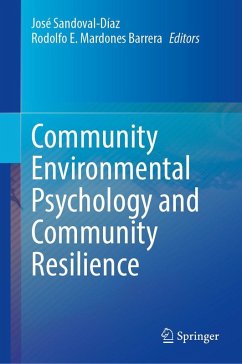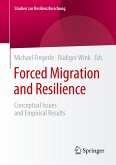This book presents a particular kind of environmental psychology that has emerged in Latin America: community environmental psychology. Different grom mainstream environmental psychology developed in the Global Norh which usually focuses on individual differences, often disconnected from historical, social and political contexts community environmental psychology is a situated approach aimed at social change and in articulation with community psychology, developed to study interactions between people and communities in relation to the natural and/or built space.
This contributed volume is organized into two complementary parts. Chapters in the first part articulate conceptual frameworks that nourish community environmental psychology and methodological approaches that help to understand, analyze and transform dynamics between communities and their environments from a situated, critical perspective committed to socio-environmental justice. Chapters of the second part present studies of community resilience in environmental psychology based on case studies carried out in six Latin American countries. These works reveal the applicability of diverse conceptual and methodological frameworks for an empirical approach to community resilience in specific psycho-environmental contexts. Situated in territories marked by socio-natural disasters, unequal urbanization, extractive economies and environmental conflicts, the studies show how communities develop and deploy response, resistance and territorial transformation capacities when faced with contexts marked by social injustice and persistent exclusion.
Community Environmental Psychology and Community Resilience aims to position community environmental psychology as a field of scientific and applied development committed to social transformation. Based on the theoretical and methodological approaches presented in the first part and the empirical studies included in the second, the book proposes an approach that situates community as the central axis of the analysis and allows expanding the traditional frameworks of environmental psychology by integrating structural vulnerability, collective agency and power, understood as procedural and contextual dynamics that configure our communal lives as constitutive dimensions of the person-environment relationship.
This contributed volume is organized into two complementary parts. Chapters in the first part articulate conceptual frameworks that nourish community environmental psychology and methodological approaches that help to understand, analyze and transform dynamics between communities and their environments from a situated, critical perspective committed to socio-environmental justice. Chapters of the second part present studies of community resilience in environmental psychology based on case studies carried out in six Latin American countries. These works reveal the applicability of diverse conceptual and methodological frameworks for an empirical approach to community resilience in specific psycho-environmental contexts. Situated in territories marked by socio-natural disasters, unequal urbanization, extractive economies and environmental conflicts, the studies show how communities develop and deploy response, resistance and territorial transformation capacities when faced with contexts marked by social injustice and persistent exclusion.
Community Environmental Psychology and Community Resilience aims to position community environmental psychology as a field of scientific and applied development committed to social transformation. Based on the theoretical and methodological approaches presented in the first part and the empirical studies included in the second, the book proposes an approach that situates community as the central axis of the analysis and allows expanding the traditional frameworks of environmental psychology by integrating structural vulnerability, collective agency and power, understood as procedural and contextual dynamics that configure our communal lives as constitutive dimensions of the person-environment relationship.








